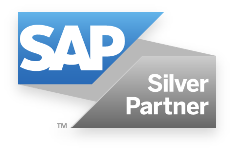Job costing for SMEs isn’t as difficult as you’ve been led to believe

Many of our customers at APH are small and medium-sized businesses that work in project engineering, contract services and professional services. Often, they start talking to us because of a very specific problem that relates to the nature of their work – they’re struggling to accurately monitor the cost and profitability of projects. They struggle with preparing quotes for their customers and managing resources, time, staff, material issuing & purchasing on a job-by-job basis. Not only that, they struggle with monitoring a project’s profitability and reacting as demands and customer needs change.
Is Excel a thorn in your project’s side?
Excel is often the go-to option for many companies trying to juggle all of these demands. However, the industry is moving towards servitisation any many are struggling to keep up to speed with the ever more demanding landscape. Spreadsheets can hold their own up to a certain point but they can come to a breaking point where time is wasted with endless formulas and disparate systems, and where opportunities are missed.
(If you are already set upon finding job costing software that can integrate with an ERP system for small businesses, you can find out more about the benefits here.)
You could continue with Excel or simple software. Or you could look at implementing advanced software that does it all for you, like job costing software powered by SAP Business One. It enables detailed project and job cost reporting at a level that other systems simply cannot provide, which means both the finance and the project delivery team can easily identify their most profitable projects and highlight areas of concern. It also provides field staff visibility of customer information, web time sheets, purchase requistion functions and the ability to deal quickly with recurring invoices and service calls. And to make it even easier, it provides drag and drop scheduling of staff and resources.
So why are some companies not forming an orderly queue for job costing software?
Not every business we talk to decides to implement this solution to solve their job costing challenges – sometimes even when it looks like the perfect fit.
The reason? It involves implementing an ERP system. And those three letters are still enough to scare a large number of SMEs off. To a certain extent, it’s understandable that many companies still think they’re too small for ERP. An ERP is a big investment, and we won’t pretend that it is for everyone. Not every SME requires an ERP system and you should seriously question any ERP consultant that pretends otherwise.
Some can struggle on with spreadsheets. However, there are identifiable tipping points and sector-specific needs where basic accounting software packages are failing to integrate with field services, usually in complex operational processes such as manufacturing, engineering and distribution.
Some ERP systems are specifically aimed at small and mid-sized companies, like SAP Business One. We can’t deny that the name itself may sound fairly formidable to a small company used to doing everything with spreadsheets or basic field services software. It’s true that the reputation of ERP software carries some baggage. Plus there’s the unescapable presence of that word ‘enterprise’ – not something that a lot of SMEs associate with their business, except perhaps as an ambition for the future.
So to companies who think they’re too small, but could clearly benefit from a solution such as SAP Business One with job costing, we tend to say two things:
1. Being a small business doesn’t mean your business is not complex.
Size is not the only thing that determines the complexity of an organisation. Smaller businesses that rely on complex processes containing a large number of interdependent steps, such as those in project engineering and contract services, have a lot to gain by implementing an ERP system.
2. An alternative solution, such as a standalone job costing product, will not be enough in the long term.
If you plan to grow your business, an ERP system is really the only option. You could choose a standalone job costing solution, or bolt on a job costing module to your existing accountancy package, but sooner or later the demands of your business will make this extremely difficult to manage. You’ll need an integrated platform that brings all of your data – quotes, purchases, transactions, invoices – together in one place.
Download our solution brief below to find out more about Job Costing with SAP Business One. And for more information about what SAP B1 could do for your business, contact us today.
{{cta(‘d5bef96e-09fa-4dd9-acb6-e8e0290013ce’)}}

